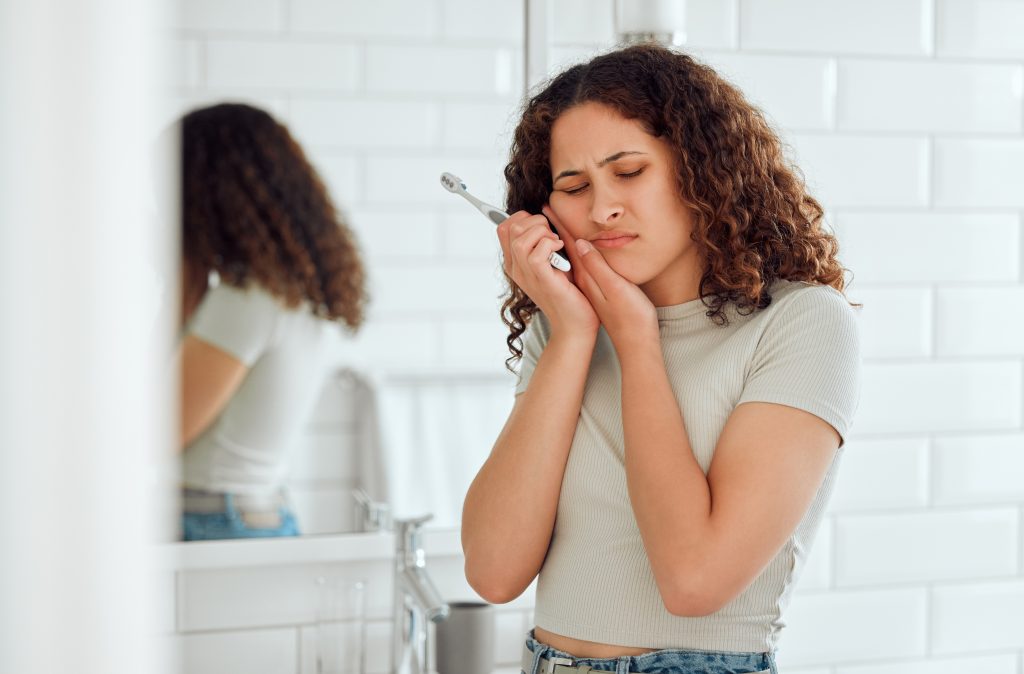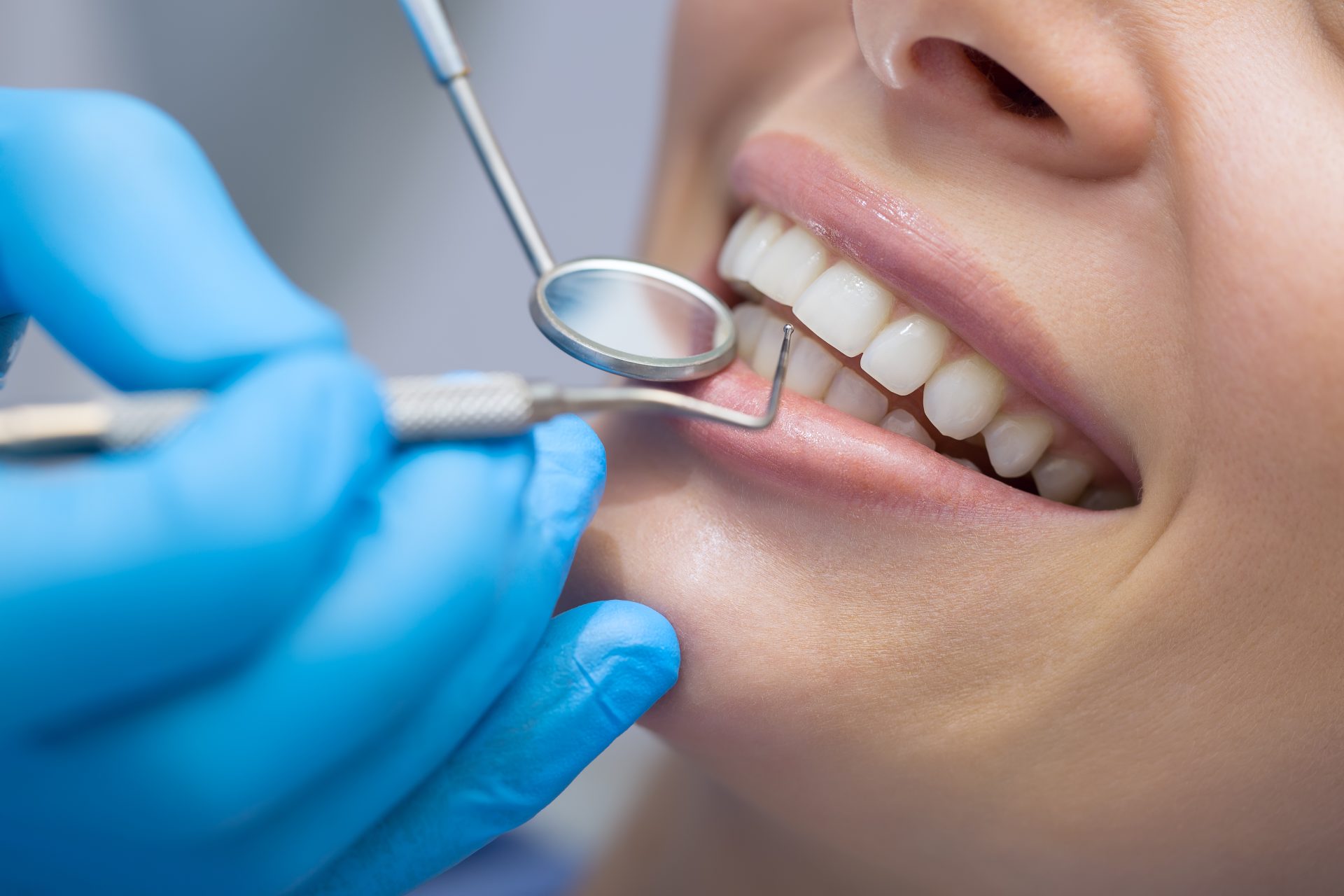Navigating Traumatic Dental Injuries
Dental injuries can be painful and scary, especially when they happen suddenly and unexpectedly. Traumatic dental injuries occur due to various reasons, including sports accidents, falls, and car accidents. These injuries can cause damage to the teeth, gums, tongue, and jawbone, leading to discomfort and potential long-term problems. Fortunately, our Kingwood, TX dentist, Dr. Derek Scott, is equipped with the knowledge and skills to properly handle traumatic dental injuries.
If you’ve experienced a traumatic dental injury, contact our Kingwood dentist immediately by calling (281) 358-3125 for prompt dental care.

What Are Traumatic Dental Injuries?
Traumatic dental injuries are any injuries that affect the teeth, gums, and surrounding tissues. These injuries can range from minor chips or cracks to more severe damage such as tooth displacement or complete tooth loss. The severity of the injury depends on the force of the impact and the area of the mouth affected. Traumatic dental injuries can cause pain, swelling, bleeding, and make it difficult to eat or speak.
Types of Dental Injuries
There are several types of traumatic dental injuries, including:
Chipped or Fractured Teeth
Chipped teeth account for the majority of dental injuries. Most chipped or fractured tooth crowns can be repaired either by reattaching the broken piece or by placing a tooth-colored filling. If a significant portion of the tooth crown is broken off, an artificial crown or “cap” may be needed to restore it.
Injuries in the back teeth often include fractured cusps, cracked teeth, or a more serious split tooth. If cracks extend into the root, root canal treatment and a full-coverage crown may be needed to restore function to the tooth. Split teeth may require extraction.
Dislodged (Luxated) Teeth
During an injury, a tooth may be pushed sideways out of or into its socket. Your Kingwood endodontist will reposition and stabilize the tooth. Root canal treatment is usually needed for permanent teeth that have been dislodged and should be started a few days after the injury.
Children between seven and 12 years old may not need root canal treatment, since teeth are still developing. For those patients, an endodontist will monitor the healing carefully and intervene immediately if any unfavorable changes appear.
Knocked-Out (Avulsed) Teeth
If a tooth is completely knocked out of your mouth, time is of the essence. The tooth should be handled very gently: avoid touching the root surface itself. If it is dirty, quickly and gently rinse it in water.
Do not use soap or any other cleaning agent, and never scrape or brush the tooth. If possible, the tooth should be placed back into its socket as soon as possible. The less time it is out of its socket, the better the chances of saving it.
Once the tooth has been put back in its socket, the endodontist will evaluate it and will check for any other dental or facial injuries. If the tooth has not been placed back into its socket, the specialist will clean it carefully and replace it.
A stabilizing splint will be placed for a few weeks. Depending on the stage of root development, your endodontist may start root canal treatment a week or two later.
Root Fractures
A traumatic injury to the tooth may also result in a horizontal root fracture. The location of the fracture determines the long-term health of the tooth.
If the fracture is close to the root tip, the chances for success are much better. The closer the fracture is to the gum line, the poorer the long-term success rate. Stabilization with a splint is sometimes required for a period of time.
Traumatic Dental Injuries in Children
Chipped primary (baby) teeth can be aesthetically restored. Dislodged primary teeth can, in rare cases, be repositioned. However, primary teeth that have been knocked out typically should not be replanted.
This is because the replantation of a primary tooth may cause further and permanent damage to the underlying permanent tooth that is growing inside the bone.
Children’s permanent teeth that are not fully developed at the time of the injury need special attention and careful follow-up, but not all of them will need root canal treatment. In an immature permanent tooth, the blood supply to the tooth and the presence of stem cells in the region may enable an endodontist to stimulate continued root growth.
Root Resorption
Resorption occurs when your body, through its own defense mechanisms, begins to reject your own tooth in response to the traumatic injury. Following the injury, you should return to our Kingwood dental office to have the tooth examined or treated at regular intervals to ensure that root resorption is not occurring and that surrounding tissues continue to heal.
How To Handle A Traumatic Dental Injury

- If a tooth is knocked out, try to place it back in its socket. If this is not possible, keep the tooth in milk or saliva until you can see a dentist.
- If a tooth is partially dislodged, try to gently push it back into its socket.
- Rinse your mouth with warm water to clean the area and apply a cold compress to reduce swelling.
- Take painkillers to alleviate the pain and discomfort.
How To Avoid Dental Injuries
Prevention is the best way to avoid traumatic dental injuries. Here are some tips to help you avoid dental injuries:
- Wear a mouthguard when playing sports or engaging in high-impact activities.
- Avoid chewing on hard objects such as ice or popcorn kernels.
- Avoid using your teeth to open bottles or packages.
- Maintain good oral hygiene to keep your teeth and gums healthy and strong.
Frequently Asked Questions
No, a cracked tooth cannot heal on its own. If you have a cracked tooth, you need to see a dentist as soon as possible to prevent further damage.
If you have a tooth knocked out, try to place it back in its socket immediately. If this is not possible, keep the tooth in milk or saliva until you can see a dentist.
No, it is not safe to use home remedies to treat a dental injury. You should always seek professional medical attention to ensure proper treatment and prevent further damage.
The healing time for a dental injury depends on the severity of the injury and the area affected. Minor injuries such as chips or cracks can heal within a few days, while more severe injuries such as tooth loss may take weeks or months to heal.
Take the First Step to Prevent and Treat Traumatic Dental Injuries
Traumatic dental injuries can be painful and scary, but with proper care and prevention, you can minimize their impact. Seek medical attention immediately and contact our Kingwood, TX dental office by calling (281) 358-3125 if you experience a dental injury, and take steps to prevent injuries from happening in the first place. By maintaining good oral hygiene and taking precautions during high-impact activities, you can keep your teeth and gums healthy and strong for years to come.